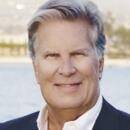The Crowd: A story about the American dream
Paul Salata is a living testament to the all-American ideal that hard work, perseverance and a bit of luck will pay off for any person living under the stars and stripes, regardless of race, creed, gender or national origin.
“I made it from L.A. to Newport Beach,” said Salata, 85. “For me, that’s success. That’s the so-called American dream.”
The second-born son of a Serbian family grew up northeast of downtown Los Angeles in Highland Park. His American-born mother, Melania, and father, Chetko, who had emigrated from the Herzegovina region in the former Yugoslavia, knew of nothing more important than family, church and hard work.
Melania, who was 15 when she married, and Chetko instilled in their large family the values that were once so much a part of the fabric of American society. Those values remain steadfast today, although they have been somewhat overshadowed by revolutionary changes in the social order.
“Does it still matter to be helpful to the next guy?” Paul Salata asked, adding, “How about doing something nice for someone for no reason at all?”
This week, after the Fourth of July celebration and just two weeks after Salata hosted the 36th Irrelevant Week in Newport Beach, which benefitted the Goodwill Fitness Center of Orange County, it seems appropriate to take society’s temperature by peeking into the life of one Newport Beach citizen who rose from the ranks of the underdog to become a champion of the last person in line.
Chetko died when Paul Salata was 12, and the seven Salata brothers all went to work to support themselves and take care of their mother. His dad had worked on the construction of underground utilities and sewer lines, and eventually Paul Salata would follow in those footsteps after a career in the world of sports.
Football at Franklin High School in Los Angeles would land him a football scholarship to USC following World War II. In 1949, Salata signed with the San Francisco 49ers. He went on to play for the Colts and the Steelers. Following his football career, he entered the construction business and eventually found success as an investor and entrepreneur in various fields, real estate development being the most prominent among them.
The man with the self-deprecating sense of humor, who is known for his malapropisms and his unfiltered Archie Bunker-esque tell-it-like-it-is philosophy drew a sold-out ballroom at the Newport Beach Marriott Hotel and Spa during the last week of June. The event featured a dais of dignitaries with more famous names from the world of sports than at any VIP Super Bowl party. Irrelevant Week XXXVI honored Cheta Ozougwu, a 6-foot-2, 255-pound defensive end from Rice University, who was the last man picked in the 254th spot of the 2011NFL Draft.
The tremendous success of the 36th Irrelevant Week was not so much about Cheta, as it was about loyalty, friendship and a lifelong connection to Paul Salata and the values that have come from both the successes and the failures on the roads he has followed.
If you were to ask Paul Salata about his heritage, after a few jokes, possibly even some off-color, he would tell you that he is an American. Not a Serbian American, just an American. OK, he might say he is an American of Serbian descent. But the essence of this distinction, ever more significant during this Fourth of July season, is that we have become a nation not of diversity, but rather of differences.
Why do we have to divide people by labeling them African American, Chinese American, Lebanese American and so forth? Do we call citizens of English descent Anglo-Americans?
If you were to ask just about any naturalized citizen of this country the reason he or she chose to come here and to leave the nation of origin, with few exceptions, the response would be the same. America is a country where people who are willing to work hard and become decent neighbors will succeed in life and will be accepted by the greater society in spite of any differences that separate people.
And beyond that, in Salata’s case, part of the equation of life for him lies in the notion that the last person in line still has a chance to rise to the top. Furthermore, nobody succeeds in life without help along the way from others — be they parents, siblings, friends, teachers, coaches or mentors of any kind.
This year in Newport Beach with help from many donors, proceeds from Irrelevant Week were earmarked for the Goodwill Fitness Center, which provides lifesaving exercise opportunities for other-abled individuals.
Ozougwu was a perfect representative of the Salata game of life. His family emigrated from Nigeria to “make a better life” in the U.S. With a 3.41 grade-point average at Rice University, where he majored in economics, Cheta now has the opportunity to play in the National Football League.
Surrounded by the likes of Clay Matthews Sr., Clay Matthews Jr., Casey Matthews, Stan Morrison, Dave Levy, Mike Haynes, Christian Okoye, John Robinson, Jim Tunney, Matt Willig, Ron Yary, John Ireland and Newport Beach sports agent and Daily Pilot columnist Leigh Steinberg, Salata told the packed ballroom, “There are so many people here, and most of you are paid up.”
At his side was Mr. Irrelevant, Ozougwu, whose Nigerian name translates as “Remember God.”
Christian Okoye, also of Nigerian descent, who played with the Kansas City Chiefs, turned to Cheta and said, “God gave you the talent … make use of it.”
Salata added, “Only in America.”
THE CROWD runs Thursdays and Saturdays. B.W. Cook is editor of the Bay Window, the official publication of the Balboa Bay Club in Newport Beach.
